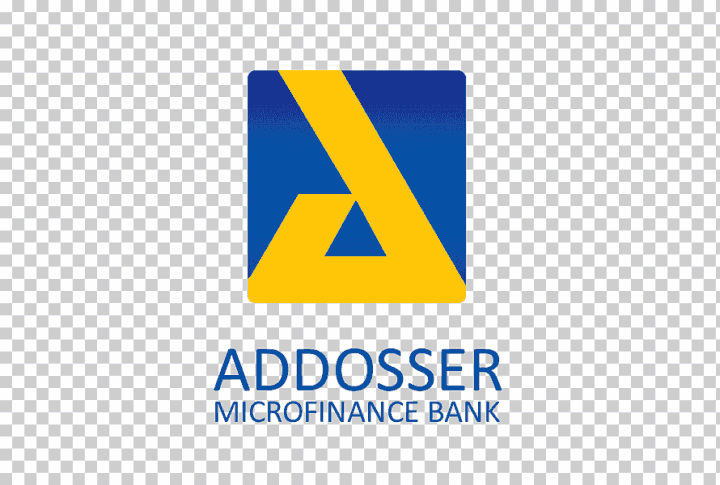Addosser Microfinance Bank (MFB), as it marks its 17th year of operation, has announced plans to obtain a national licence, signalling its ambition to increase financial inclusion and broaden its footprint across Nigeria. The milestone anniversary and the licence pursuit reflect the stable growth and strategic evolution the bank has experienced since establishment, positioning it for a more significant role in the country’s financial services sector.
Established in 2008, Addosser MFB has consistently focused on providing accessible financial products and services to underserved individuals and small businesses. Over the years, the bank has built its reputation on flexible loan offerings, savings plans, and mobile-based interventions designed to address grassroots credit challenges. Operating initially under a state-level licence, Addosser has steadily grown its branch network, implemented digital banking channels, and built a strong customer base, especially among informal sector traders, artisans, and rural entrepreneurs.

At a ceremony celebrating its 17th anniversary, management unveiled its ambition to upgrade its operational licence to a national microfinance licence. This move will allow Addosser to expand operations into other states, reach new markets, and introduce a wider suite of products to more Nigerians. The bank’s leadership expressed confidence in securing the licence within the next nine to twelve months, citing its solid capital foundation, governance systems, and track record of compliance.
The Managing Director of Addosser MFB emphasised that the national licence is not merely a regulatory upgrade but part of a broader strategic vision. He noted that increasing financial inclusion is central to Nigeria’s economic development plan, and MFBs play a vital role as intermediaries to the financially excluded. Obtaining national status will enable Addosser to deploy its solutions—such as affordable microloans, financial literacy outreach, and micro-savings platforms—to a wider demographic, especially in underserved regions.
Under its current licence, Addosser has already introduced several innovative products that serve as a foundation for scaling. These include a mobile app that allows users to access small-scale credit, monitor account activity, and receive financial education. The bank also runs community outreach programmes to train rural women in bookkeeping and entrepreneurship. Management believes these pilot initiatives provide a blueprint for broader application as they seek to operate nationally.
Securing a national licence will present new opportunities but also heightened expectations. The Central Bank of Nigeria (CBN) requires national MFBs to meet more stringent capital, risk management, IT infrastructure, and customer protection standards. Addosser has begun transforming its operations to meet these criteria, investing in enhanced digital banking platforms, stronger risk controls, and internal audit functions. It has also announced plans to recruit seasoned professionals in compliance, IT security, and retail banking to drive transformation efforts.
Industry analysts believe Addosser’s move is timely. Nigeria’s microfinance sector, though rapidly growing, remains fragmented and underserved, with only a handful of national players covering the majority of the market. The sector is projected to support millions of entrepreneurs, particularly in chassis of the informal economy. A national licence would enable Addosser to leverage its strengths—customer relationships, flexibility, and digital competence—at scale.
Local regulators and industry stakeholders have welcomed Addosser’s ambitions. A representative from the Microfinance Banks and Finance Company Association of Nigeria (MFBFANC) praised the initiative as indicative of a maturing microfinance market and encouraged other operators to follow suit. Observers believe that more national MFBs will help deepen intermediation in neglected regions and relieve pressure on commercial banks by serving small-ticket borrowers more effectively.
The anniversary event also showcased Addosser’s performance over the past year. Senior executives highlighted improvements in loan disbursement volumes, reduction in loan delinquency rates, and growth in savings deposits. These metrics reflect prudent lending practices and cautious expansion. The bank also announced ongoing pilot schemes in micro-insurance and agritech financing for smallholder farmers, both aimed at diversifying revenue streams and meeting evolving client needs.
Staff, customers, and partners joined the celebrations, sharing testimonies of how Addosser’s services had impacted their businesses and households. One trade union leader from a Lagos market said the loans they received had enabled members to grow their merchandise volumes and improve their standard of living. A female entrepreneur from the South East recounted how business management training had transformed her small tailoring enterprise into a sustainable venture employing apprentices.
Looking forward, Addosser’s leadership reiterated its dual mission: deepen financial access for Nigeria’s underserved while building a sustainable, responsible bank. Its national licence application coincides with broader nationwide goals to integrate rural communities into the formal financial system and foster economic resilience. Success, they say, will require collaboration with regulators, funders, fintech partners, and community networks.
As it marks 17 years of operation, Addosser MFB’s push for national status reflects a new phase in its journey—from local micro-lender to a scalable engine for financial inclusion. If granted a licence, the bank will join an elite group of microfinance institutions capable of influencing national economic participation. The coming months will test its readiness to embrace larger markets, regulatory demands, and the complexities of financial scale, but its track record suggests it is prepared for the challenge.
With a solid foundation, customer-centered culture, and ambition aligned with national development, Addosser MFB is poised for growth. Its bicentennial milestone highlights not only past endurance but a pivot toward deeper impact. As Nigeria continues the drive to deepen financial inclusion, Addosser’s story underscores the potential of private microfinance institutions to contribute meaningfully to economic transformation.
Support InfoStride News' Credible Journalism: Only credible journalism can guarantee a fair, accountable and transparent society, including democracy and government. It involves a lot of efforts and money. We need your support. Click here to Donate
